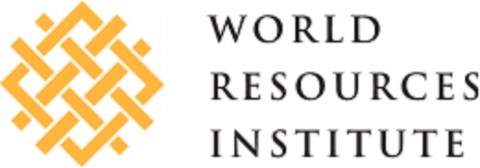Influencing equitable urbanization dialogue by supporting the development of sanitation and water working papers by World Resource Institute
2017 - 2018 • World Resources Institute
Purpose
To analyze data, author, and publish an action-oriented research paper on access to sanitation services in cities of the global South as part of the World Resources Report
Activities
The project will result in a working paper on challenges and actionable solutions to equitable access to sanitation services in struggling and emerging cities in the global South. The paper is part of the World Resources Report (WRR), Towards a More Equal City. The report examines whether equitable access to core urban public services can help achieve a more economically productive and environmentally sustainable city.
This work on sanitation is part of a series on sustainable cities, produced by the World Resources Institute (WRI). The series is called the World Resources Report (WRR), Towards a More Equal City.
The report has a set of research papers that examines this question from the perspective of a core urban service, such as this paper on access to equitable access to sanitation services. This paper first examines urban sanitation from global comparative perspective and then provides a more detailed look at 15 cities. The sanitation analysis examines efforts to address fecal sludge containment, transportation, and treatment.
The research considers current realities in informal settlements and the challenges of providing universal, reliable, and affordable sanitation services. It will examine efforts to reduce costs to consumers, efforts to upgrading informal settlements, and the importance of short-, medium- and long-term solutions, while considering governance, finance, and the capacity to plan and manage urban change over time.
In July 2017, we held a high-level stakeholder engagement workshop in Washington D.C. More than 15 international sanitation experts joined us for an intensive two-day workshop on the framing and solution sets of the working papers.
From April 2017 – September 2018, we are working with local sanitation experts and researchers to collect primary data on the level of access, quality of access, and costs of sanitation services in 15 cities across the global South. The list of cities includes: Cochabamba, Bolivia; Nairobi, Kenya; Lagos, Nigeria; Rio de Janeiro, Brazil; Kampala, Uganda; Mzuzu, Malawi; Cali, Colombia; Bangalore, India; Dhaka, Bangladesh; Caracas, Venezuela; Sao Paulo, Brazil; Mumbai, India; Maputo, Mozambique; Karachi, Pakistan; Colombo, Sri Lanka; and Kunming, China.
Countries of activity
Location of main activity
Objectives
There is an emerging global consensus that cities must work towards providing sanitation services for all. Achieving this outcome is not guaranteed. It requires a new vision of how to build and manage cities. The objective of this research is to present actions cities can take to ensure equitable access to sanitation services as the entry point for urban sustainability. It will contribute to the social and political movement of urban change agents and policymakers working towards this outcome.
Further information
Research or implementation partners: IIED
Contact information
Jillian Du
Login to see the e-mail-adress of the contact person.
Victoria Beard
Login to see the e-mail-adress of the contact person.
Filter tags
Bill & Melinda Gates Foundation Capacity development Cities Enabling environment and institutional strengthening Global North America Political processes and institutional aspects Politicians and local decision makers University, education or research institution
Attached files
Links

Uploaded by:
Elisabeth von Muench (Elisabeth)















